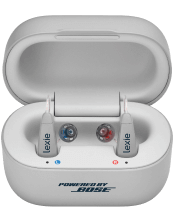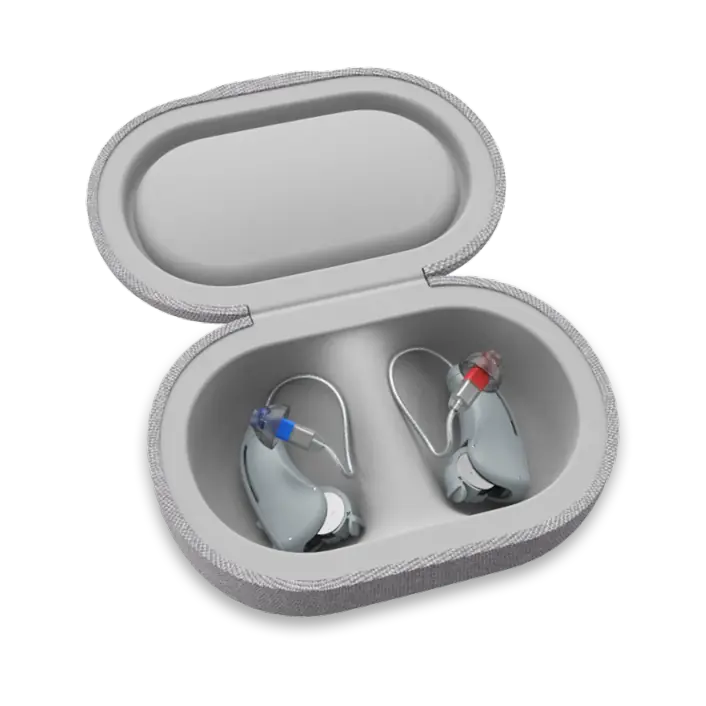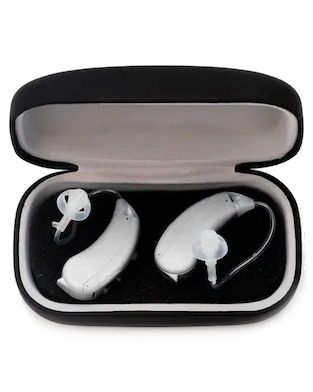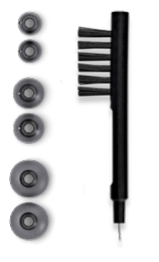What is Vertigo: Causes, Symptoms, and Treatment
Published: June 5, 2023
Updated: June 8, 2023
Vertigo is characterized as a condition that causes a spinning sensation when you aren’t actually spinning. Vertigo can be experienced as either an internal or external spinning sensation, and is most commonly associated with issues with the inner ear. However, it could also be a symptom of a more serious condition affecting your brain. If the vertigo persists, it’s advisable to have it checked out.
What is Vertigo?
The most important thing to remember about vertigo is that it is actually a symptom of many health conditions, rather than being a condition itself. It is characterized as the feeling of spinning, either internally or externally, when you are not spinning, and can occur along with other symptoms as well.
Other symptoms can include:
- Nausea
- Vomiting
- Dizziness
- Balance issues
- Hearing loss
- Tinnitus
- Headaches
- Motion sickness
- Nystagmus (rapid eye movement from side-to-side)
Types of Vertigo
There are two types of vertigo, namely peripheral and central.
Peripheral vertigo
Peripheral vertigo is the most common type of vertigo, and happens when there’s an issue with your inner ear, or vestibular nerve. Since your inner ear and vestibular nerve both affect your sense of balance, it would make sense that you would feel a sense of vertigo if these were affected.
Central vertigo
Central vertigo is less common, and happens when you are suffering from a condition that affects the brain. These conditions could include an infection, a stroke, or a traumatic brain injury. Central vertigo is typically more detrimental as it could cause you to suffer from severe instability, or have difficulty walking.
Causes of Vertigo
There isn’t necessarily one cause of vertigo, and it can differ from person to person, depending on a range of factors. Below are some common causes of vertigo.
- Migraines
- Medications, including antibiotics, anti-inflammatories, and cardiovascular medications
- Stroke
- Arrhythmia
- Diabetes
- Head injuries
- Prolonged bed rest
- Shingles
- Ear surgery
- Perilymphatic fistula (inner ear fluid leaking into middle ear)
- Hyperventilation
- Ataxia (muscle weakness)
- Syphilis
- Otosclerosis
- Brain disease
- Multiple sclerosis
- Acoustic neuroma
Treatment of Vertigo
Vertigo is diagnosed by a healthcare professional, who will perform a physical exam, as well as question you about the symptoms you are facing. There are some other diagnostic tests they could perform in order to confirm your diagnosis.
Diagnostic tests
Fukuda-Unterberger Test
The name is far more intimidating than the actual test itself. Your healthcare professional will ask you to march in place for 30 seconds with your eyes shut. There might be an issue with your inner ear if you rotate or lean to one side, which could cause vertigo.
Romber’s Test
A simple test that requires you to stand with your feet together and your arms to the sides. You could have some issue with your brain or spinal cord if you feel unbalanced or unsteady during the test.
Head Impulse Test
Your head will be gently moved to each side while you focus on a stationary object. Your eyes will be examined closely as your head is moved to watch for rapid eye movements, which could indicate an issue with your balance or inner ear.
Vestibular Test Battery
This is a compilation of tests to determine if there are issues with your vestibular nerve or inner ear system. This test could also determine if there is an issue in the brain or inner ear, which could be the cause of your vertigo symptoms.
Treatment
There is no set method of treating vertigo, as it will depend on the root cause. However, there are a variety of treatments that are available to help ease the symptoms of vertigo.
Repositioning maneuvers
In the case of benign paroxysmal positional vertigo (BPPV), certain maneuvers can shift the tiny calcium carbonate crystals (canaliths) back to where they belong – the utricle in your inner ear.
Medication
Medication can assist with some cases of acute vertigo. Some medications that can be suggested include meclizine (motion sickness), and antihistamines such as cyclizine.
Vestibular rehabilitation therapy
Vestibular rehabilitation therapy usually includes a variety of exercises to improve vertigo symptoms, such as dizziness, unstable balance, and vision issues. Exercises may include stretching, strengthening, eye movement control, and marching in place. The idea behind these exercises is to also teach you how to do them at home, to manage symptoms when you have an episode.
Surgery
Surgery is typically only reserved for cases where an underlying condition such as a brain tumor is responsible for the vertigo symptoms. Typically, healthcare providers will exhaust every other option before recommending surgery.
In Summary
Vertigo is typically a symptom of another condition, and is characterized by an internal or external spinning sensation while not moving. It could indicate issues with the inner ear, middle ear, or it could indicate something a lot more sinister. If you are experiencing symptoms of vertigo, it is advised that you seek the help of a medical professional, as there could be something more serious causing it.







